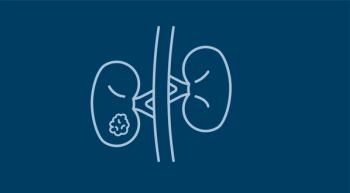
Data from a retrospective analysis confirm the benefit of palbociclib plus an aromatase inhibitor in elderly patients with hormone receptor–positive, HER2-negative advanced/metastatic breast cancer.

Megan is an assistant editor at MJH. She joined the company in 2022 after graduating from UMass Amherst with majors in communication and english. When not at work, Megan enjoys fishing, spending time with her twin sister, and listening to Taylor Swift on repeat. Email Megan at mhollasch@onclive.com

Data from a retrospective analysis confirm the benefit of palbociclib plus an aromatase inhibitor in elderly patients with hormone receptor–positive, HER2-negative advanced/metastatic breast cancer.

Leslie Smith, DNP, RN, APRN-CNS, BMTCN, AOCNS, highlights the pirtobrutinib approval for mantle cell lymphoma, and what she anticipates will encompass best nursing practices with the newly approved agent.

Circulating tumor DNA can be an effective biomarker that allows for assessments of early response.

Pure essential oils reduced the severity of chemotherapy-induced nausea and vomiting in patients receiving autologous blood and marrow transplants.

Updated findings from the KEYNOTE-146 trial support the use of lenvatinib/pembrolizumab in advanced endometrial cancer.

Patients with RAS-wild-type metastatic colorectal cancer did not experience a benefit in terms of response rate or survival when cetuximab was added to the first cycle of chemotherapy.

Neoadjuvant pembrolizumab elicited high clinical activity in patients with mismatch repair deficiency/microsatellite instability high solid tumors and was well tolerated.

Heather Jackson, PhD, FNP-BC, NEA-BC, FAANP, provides a case-based perspective on the benefit of auricular acupuncture as a tool for managing cancer pain.

Jamie Carroll, APRN, CNP, MSN, offers her perspective on emerging data from the 2022 San Antonio Breast Cancer Symposium.

The American Society of Clinical Oncology (ASCO) has updated its guidelines providing recommendations for the management of cancer pain with opioids.

Neoadjuvant treatment with gemcitabine and split-dose cisplatin followed by surgical resection and lymph node dissection proved to be effective and well-tolerated for patients with high-risk upper tract urothelial carcinoma.

The American Society of Clinical Oncology (ASCO) has released new guidelines providing recommendations for the optimal treatment of patients with advanced gastroesophageal cancer.

Caressa Valdueza, MSN, AGNP-BC, AOCNP, discusses toxicity management with unfolding treatment options in melanoma.

Ellen Miller, MSN, FNP-BC, a nurse practitioner who specializes in survivorship care, underscores what conversations surrounding fertility and pregnancy may look like after radiation.

In real-world practice, use of ovarian suppression therapy was not common among premenopausal patients with hormone receptor–positive, HER2-positive breast cancer, with tamoxifen being the preferred endocrine therapy.

A key component of health equity includes ensuring that clinical trials reflect subgroups of patients who are more reflective of real-world populations.

Psychiatric distress and existential distress are associated with poor outcomes in patients with advanced cancers and treatment options such as psychotherapy have demonstrated limited effectiveness.

A significant portion of patients with resected stage IIIA melanoma were alive and recurrence free at a median follow-up of over 20 months following treatment with adjuvant nivolumab.

Narjust Florez, MD, emphasizes why oncology health care professionals should bring a sense of urgency to ensuring that clinical trials represent all patient populations.

Jesus Cepero, PhD, RN, highlights the value of holistic care environments in pediatric oncology.

Linda Laskowski-Jones, MS, APRN, ACNS-BC, CEN, NEA-BC, FAAN, discusses how oncology nurse leaders can help improve working environments for their staff.

At the 2022 ASCO Quality Care Symposium, an adverse event analysis showed that abemaciclib has a manageable safety profile and that dose reductions may be a key aspect of appropriate symptom management.

Derazantinib, an FGFR inhibitor, was associated with a median progression-free survival (PFS) of 7.8 months in patients with FGFR2-positive intrahepatic cholangiocarcinoma.

Anne Delengowski, RN, MSN, AOCN, CCCTM, discusses the evolving role of the oncology nurse in clinical trial research.

Karen Hande, PhD, DNP, ANP-BC, CNE, FAANP, ANEF, discusses increased patient interest in cannabinoids and how oncology nurses can steer pain management conversations to keep patients informed.

ASCO has released new guidelines concerning the optimal treatment of patients with metastatic clear cell renal cell carcinoma following a systematic literature review by an expert panel.

In a real-world analysis of patients with hepatocellular carcinoma, the median overall survival with lenvatinib was 9.7 months in the low-dose group and 7.6 months in the recommended-dose group.

Kristin Daly, MSN, ANP-BC, AOCNP, discusses the clinical significance of tumor variants and how they are changing the direction of cancer care.

Results of retrospective analysis of previously treated patients with metastatic renal cell carcinoma who received nivolumab in the second- and third-line showed that health-related quality of life was maintained in the real-world setting

Real-world data from a retrospective study showed that pembrolizumab combined with the anti-VEGF agent bevacizumab plus oral metronomic cyclophosphamide displayed minimal toxicity in a significant number of patients with recurrent epithelial ovarian, fallopian tube, or primary peritoneal cancer.